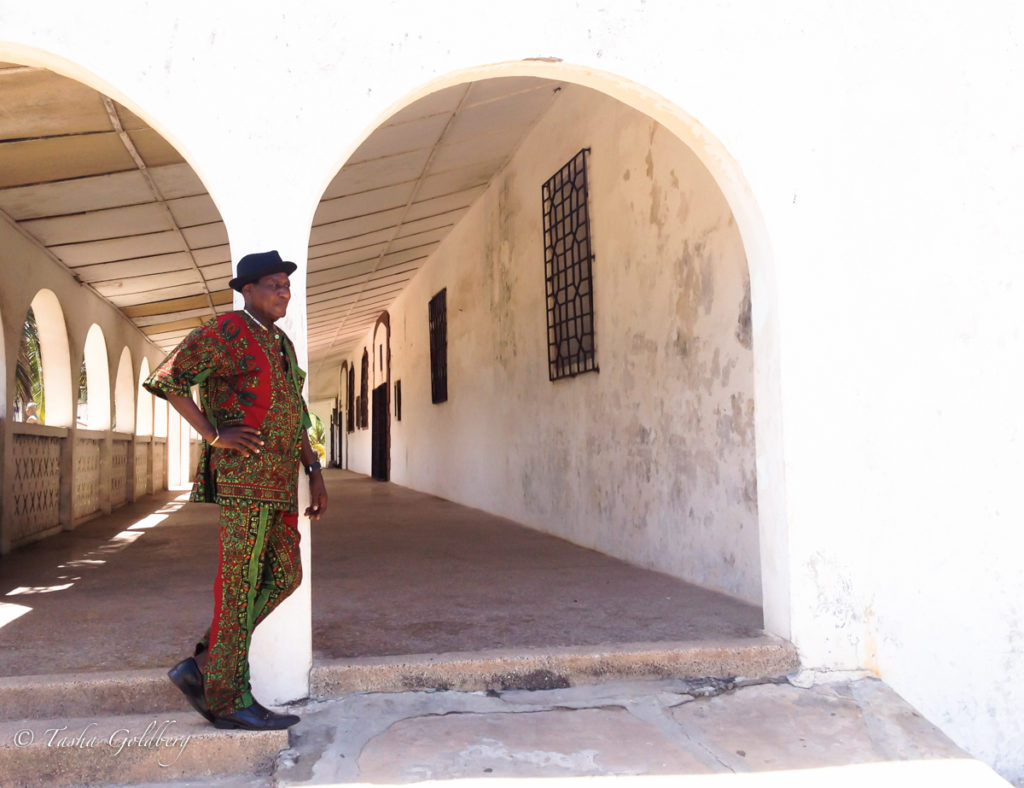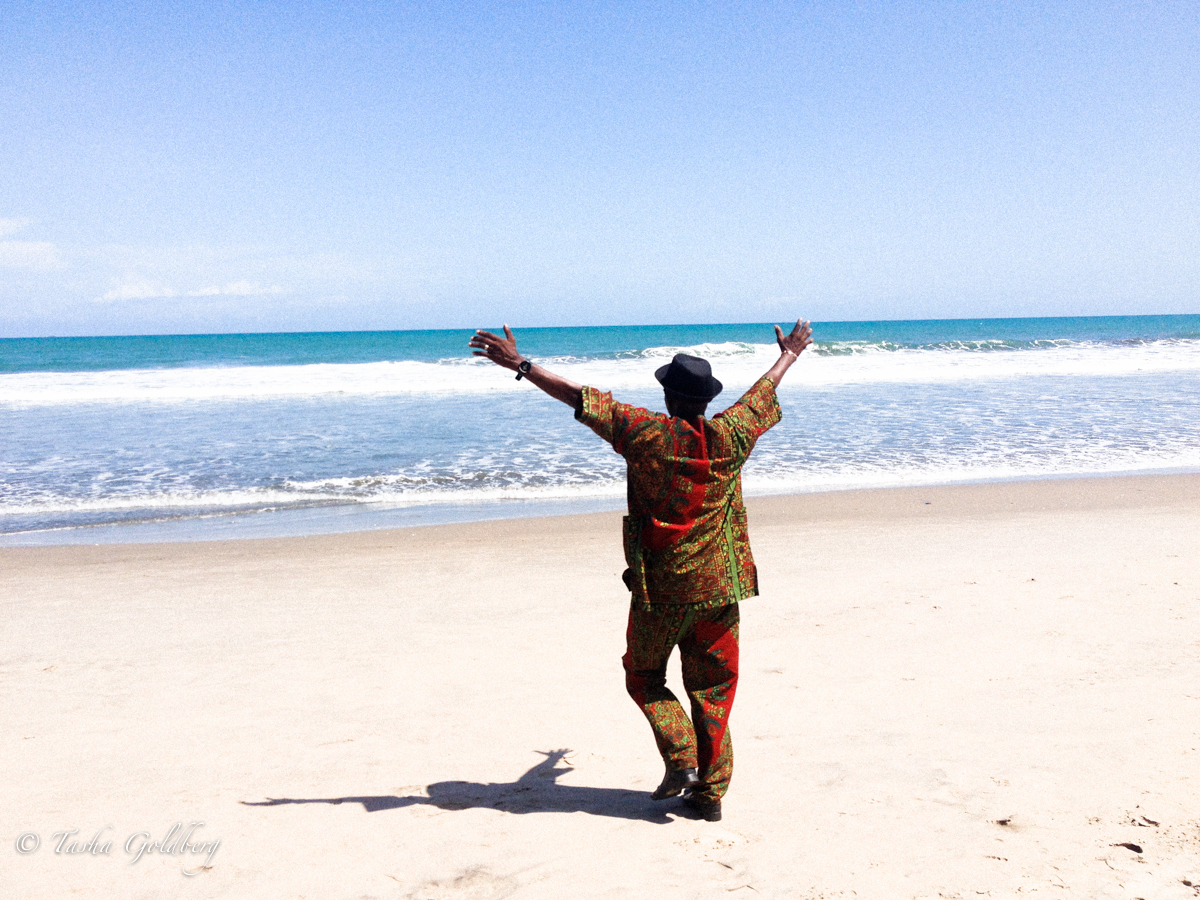
The life of Ebo Taylor traces the roots of highlife culture and evolves into Afro-funk. No woman, nor song, has ever held him for long. He exudes joy, his smile and his sound are palpable expressions of his love of life. Ebo Taylor is a great musician, a talented producer, and most of all, Uncle Ebo is a composer. As a sonic architect, he bridges tradition with the now to produce sounds for the future, all designed to make us dance. His vision is our delight.
I met up with Ebo Taylor in his home in Saltpond, along the golden coast of Ghana. After a mini-tour of his altar of awards, trophies and posters, we headed to the neighborhood beach squat. The sandy corridor has always been a spot for Ebo, a place where he has written many of the lyrics that we dance to today. On this particular day, we linked up with one of his sons, Jimmy Taylor, otherwise known as Roy X, who had set up a full sound system for the crowd of passing children, extended families, and women carrying their harvest on their heads. The young Taylor is clearly on the scene, and bringing his own heat.









